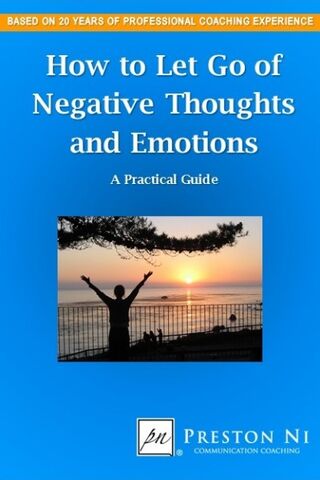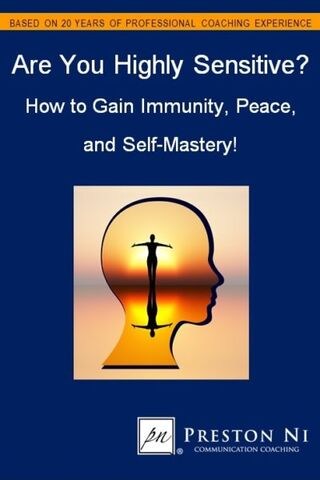Perfectionism
The Problem with Perfectionism–How to Truly Succeed!
Are you a perfectionist? There's a better way to succeed!
Posted July 6, 2014

Author's Note: The following is an excerpt from the book (click on title): “How to Let Go of Negative Thoughts & Emotions – A Practical Guide."
Are you a perfectionist? Many perfectionists are very hard on themselves when it comes to perceived imperfections, faults, and shortcomings. You may think that you’re not good enough in some ways, thereby placing tremendous pressure on yourself to succeed.
While setting high standards can serve as an effective motivational tool (1), expecting yourself to be perfect takes joy out of life, and can actually limit your greatest potential for success. Multiple studies have shown the correlation between perfectionism and unhappiness (2)(3)(4)(5). Try as we might, it simply isn’t human to be perfect, and certainly not all of the time.
“Given the desire to be valued and appreciated, it’s tempting to try to appear to be perfect, but the costs of such deceptions are high…How can you like yourself when you don’t measure up to the way you ought to be?”
— R. Adler and R. Proctor II
Instead of Fixating on Perfection, Refine Towards Excellence
In your tasks and activities, instead of pressuring yourself to be perfect every step of the way, see who you are and what you do as a work in progress, with flexibility for adjustments and refinement. Often times, it’s important and healthy to simply say that something you have done is “sufficient,” “acceptable,” “satisfactory,” or “a step in the right direction,” and move on without ruminating over imperfections. It’s helpful to let others know that this is your approach as well, to free yourself from the pressure (and trap) of having to appear perfect. Use terms such as “brainstorm,” “experiment,” “work in progress,” or “refinement process,” when describing your endeavors. There’s power in being flexible. The rigid is more breakable.
This does not mean that one shouldn’t aim for excellence, especially in areas of your greater purpose. There’s a big difference between excellence and perfection. People who strive for excellence (such as Steve Jobs and Michael Jordan) are motivated by passion. They see trial and error as a crucial guide – a fundamental component of constant improvement and refinement.
“Sometimes when you innovate, you make mistakes. It is best to admit them quickly, and get on with improving your other innovations.”
— Steve Jobs
“I've missed more than 9000 shots in my career. I've lost almost 300 games. 26 times, I've been trusted to take the game winning shot and missed. I've failed over and over and over again in my life. And that is why I succeed.”
— Michael Jordan
Perfectionists, on the other hand, are often haunted by the fear of rejection and failure – they see mistakes as negative reflections of their self-worth, to be avoided at all costs.
You can be excellent without having to be perfect. Perfectionism is merely an illusion. Excellence can be achieved towards the progressive realization of your success!
“How liberated you become when you can comfortably accept the idea that you are not perfect!”
— R. Adler and R. Proctor II


For more in-depth information on reducing or eliminating over fifteen types of negative attitudes and feelings, see my book (click on title): "How to Let Go of Negative Thoughts and Emotions.”
Also available (click on title): "Are You Highly Sensitive? How to Gain Immunity, Peace, and Self-Mastery!"
© 2014 by Preston C. Ni. All rights reserved worldwide. Copyright violation may subject the violator to legal prosecution.
References:
(1) Roedell, W.C. (1984). "Vulnerabilities of highly gifted children". Roeper Review 6 (3): 127–130.
(2) Rice, Kenneth G.; Leever, Brooke A.; Noggle, Chad A.; Lapsley, Daniel K. (2007). "Perfectionism and depressive symptoms in early adolescence". Psychology in the Schools 44(2): 139–156. doi:10.1002/pits.20212.
(3) Psychology Today (May 1995). "Perfectionism: Impossible Dream". Psychology Today.
(4) Allen, C. (May 2003). "The Perfectionist's Flawed Marriage". Psychology Today.
(5) Rachel Rettner. "Being a Perfectionist Can take toll on health". NBCNews.com.




